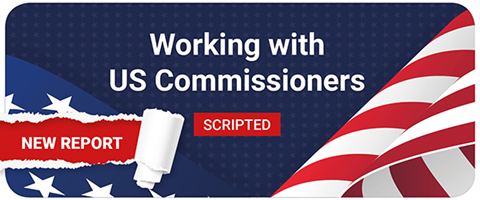Scripted drama indies should be encouraged by the international drama boom to pitch their shows to some of the biggest names in American programming, a new report by Broadcast Intelligence suggests.
A detailed study of producers, agents and commissioners by Broadcast Intelligence has revealed that competition from the streamers has led to a rapid acceleration of original scripted programming in the US. There has never been a better time for international producers and writers to pitch to major US networks such as HBO, FX, Starz and AMC.
Opportunities are not limited to just the UK. Although previously the big US channel brands were only interested in productions or in co-productions with partners from English-speaking territories, the fact that competing SVoDs, such as Netflix and Amazon, have an inherently global outlook and order local shows in local languages is now helping such content to gain momentum across the cable and broadcast networks in the US.
The Working with US Commissioners – Scripted report highlights key opportunities for producers, as well as offering insight from those who have experienced the US commissioning system first hand. Broadcast Intelligence spoke to six international producers who have either gained a full commission or co-production deals with US networks.
The full report also features the content policies of 12 US TV channels, uncovering their original scripted programming strategies. Additionally, top scripted commissioners are interviewed with information on how best to pitch to them and what their programming requirements are.
Kate Harwood, producer and MD of Euston Films told the authors of the report that since the drama boom, a whole new set of possibilities and opportunities for working in the US has opened up. The producers also offer more insight into cultural differences such as the formality of pitch meetings plus knowledge on funding and rights negotiations.
Another route to the airways of the US is via an agent. Agents from WME, IMC and CAA spoke to Broadcast Intelligence offering their insights into how the US system works, as well as offering advice on securing representation.
Key findings include a need to prepare for the difference in style of pitching, as well as an insight into how the US studio system plays a role in commissioning. The difference between broadcast networks, premium cable and basic cable also plays a part in which channels are after which content.


































No comments yet